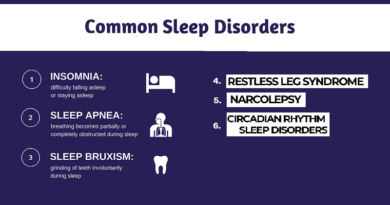Benefits of Sleep: What Happens During Sleep?
Sleep is not a period of inactivity, but it’s a complex and dynamic process with several benefits for our bodies. It involves various physiological and neurological changes that lead to many health benefits. While we sleep, our bodies and brains undergo essential functions that contribute to numerous benefits. Below I will discuss some of the key processes that occur during sleep and the benefits of sleep.
Benefits of Sleep
1- Restoration and Repair
Sleep plays a vital role in restoring and repairing the body. How? During sleep tissues and muscles are repaired, and growth and development occur. Sleep is also essential for the immune system to function optimally for healing and fighting off infections.
2- Memory Consolidation
It is closely linked to memory formation and consolidation. During sleep, the brain processes and stores information, enhancing learning and memory retention. And new memories also integrate with existing knowledge, leading to improved cognitive function.
3- Hormone Regulation
Regulating hormone levels in the body is a function that occurs during our sleep. Growth hormones, cortisol, and melatonin are regulated during sleep. These hormones influence various body functions, including metabolism, stress response, and sleep-wake cycles.
4- Mental and Emotional Well-being
Sufficient sleep is essential for maintaining optimal mental and emotional well-being. It helps regulate mood, emotions, and social interactions. Therefore, lack of sleep can contribute to mood disorders, increased irritability, and decreased ability to cope with stress.
5- Energy Conservation
During sleep, the metabolic rate decreases, and the body’s energy resources are replenished. This helps to support physical and mental activities during day activities and promotes overall vitality and alertness.
6- Brain Detoxification
One of the important processes done while sleeping is the brain’s detoxification process. The glymphatic system, a waste clearance system in the brain, becomes more active, helping to remove toxins and metabolic waste products that accumulate during waking hours.
7- Physical Performance and Recovery
Quality sleep is essential for optimal physical performance and athletic recovery. It enhances muscle repair, coordination, and reaction time, contributing to improved athletic performance. Sleep deprivation, on the other hand, can impair physical abilities, and coordination, and increase the risk of injuries.
8- Overall Health and Longevity
Adequate sleep has been associated with better overall health and increased longevity. Chronic sleep deprivation has been linked to an increased risk of various health conditions, including obesity, diabetes, cardiovascular diseases, and compromised immune function. Getting enough quality sleep is essential for maintaining good health and reducing the risk of these conditions.
SUMMARY
Sleep is a complex process that offers numerous benefits. It restores the body, enhances memory, regulates hormones, promotes well-being, conserves energy, detoxifies the brain, improves physical performance, and contributes to overall health and longevity. Prioritize sleep and establish healthy sleep habits to reap these benefits.
About 7-9 hours of quality sleep per night, maintaining a consistent sleep schedule, creating a conducive sleep environment, and practicing relaxation techniques will promote better sleep. If you are experiencing persistent sleep problems or suspect a sleep disorder, consult with your healthcare for proper evaluation and guidance.




